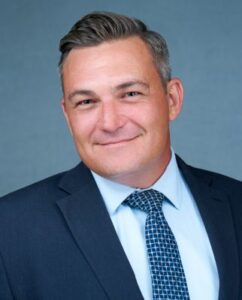 Greg Seeley is a retired US Air Force veteran and dedicated public servant with extensive public policy and administration experience. Greg served 12 years on active duty including a year long tour in Afghanistan serving with an Embedded Training Team for which he was awarded the Meritorious Service and Air Force Combat Action Medals. Since retiring in 2016, Greg has been a driven Democratic Party and VMFC volunteer, an outspoken community advocate, supporting Veterans and Military Families in New Mexico. Greg lives in the North East Heights of Albuquerque with his Wife Jess, three sons and their adopted rescue dog, Charlee.
Greg Seeley is a retired US Air Force veteran and dedicated public servant with extensive public policy and administration experience. Greg served 12 years on active duty including a year long tour in Afghanistan serving with an Embedded Training Team for which he was awarded the Meritorious Service and Air Force Combat Action Medals. Since retiring in 2016, Greg has been a driven Democratic Party and VMFC volunteer, an outspoken community advocate, supporting Veterans and Military Families in New Mexico. Greg lives in the North East Heights of Albuquerque with his Wife Jess, three sons and their adopted rescue dog, Charlee.